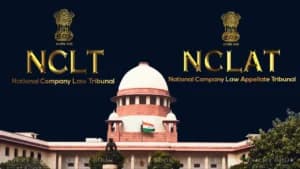The Supreme Court on May 6 directed the State of Maharashtra to conduct local body elections that had been on hold since 2022 due to disputes around OBC reservation implementation. The Court clarified that elections should proceed based on the OBC reservation status that existed prior to the submission of the JK Banthia Commission report in July 2022.
"The reservation shall be provided to the OBC communities as per the law as it existed in the State of Maharashtra before the 2022 report of the JK Banthia Commission," the Supreme Court stated in its interim order.
A bench of Justices Surya Kant and NK Singh ordered the State Election Commission to notify the election schedule within four weeks and to aim for completion within four months. However, the Election Commission may request an extension if necessary.
The Court emphasized that the elections would be "subject to the outcome of the petitions challenging the Banthia Commission" and that the interim order would not affect any legal arguments raised by the involved parties.
The bench reinforced the importance of democratic representation at the local level, stating:
"In our considered opinion, the constitutional mandate of grassroots democracy through periodical elections to local bodies ought to be respected and ensured."
Since the Supreme Court had placed a status quo order on OBC reservations in August 2022, elected bodies were not functioning, and bureaucrats were making key decisions without public accountability.
During the hearing, Justice Kant questioned the State’s delay in holding elections, saying:
"Whatever the law you have formulated, wrong or good — that we will decide. You have already identified certain classes of OBCs. Why can't elections be held as per that law without prejudice to the petitioners’ contentions?"
Justice Kant expressed concern that important decisions were being taken by bureaucrats without democratic legitimacy.
"Because of all this litigation, a complete democratic process has been stalled. Officers have no accountability."
Read also: Supreme Court Makes History: Judges’ Assets and Liabilities Published Online for the First Time
Senior Advocate Indira Jaising, representing the petitioners, highlighted that over 34,000 seats meant for OBCs were de-reserved as per the Banthia Commission report. She argued that the elections should not be based on the report.
Justice Kant responded:
"Suppose whosoever has been declared as OBC, based on that, let the elections be held, subject to the outcome of the proceedings… Assuming someone has been wrongly included or excluded, how is it going to make a difference? They will have an opportunity [next elections]. It is not a permanent election for the whole life."
Jaising urged the Court to allow elections, stressing:
"Elections have been withheld for far too long. They are running all representative bodies, right from gram panchayats up to zilla parishads only through their chosen bureaucrats and taking major policy decisions."
Justice Kant added that the Court is already handling issues caused by bureaucrats mismanaging panchayats and even leasing public properties in the absence of elected bodies.
Jaising also pointed out that the State had nullified the delimitation process through an Ordinance.
Senior Advocate Gopal Sankaranarayanan, in a new writ petition, argued that political backwardness must be established for political reservations and that the Banthia Commission used a list based on social and educational backwardness, which does not meet constitutional requirements.
"A report which has to do with political backwardness has to apply the principles which the Constitution Bench laid down in the Krishnamurthy judgment," Sankaranarayan emphasized.
He added that political reservation under Articles 15(4) and 16(4) requires specific identification of Politically Backward Classes (PBCs), which was not followed.
However, all parties, including Sankaranarayan, agreed that elections should not be stalled further.
After hearing the Solicitor General of India Tushar Mehta at 1 PM, the Court issued the formal order, allowing elections to proceed under the previous OBC reservation structure.
Case Title: RAHUL RAMESH WAGH Versus THE STATE OF MAHARASHTRA AND ORS., SLP(C) No. 19756/2021 (and connected cases)















